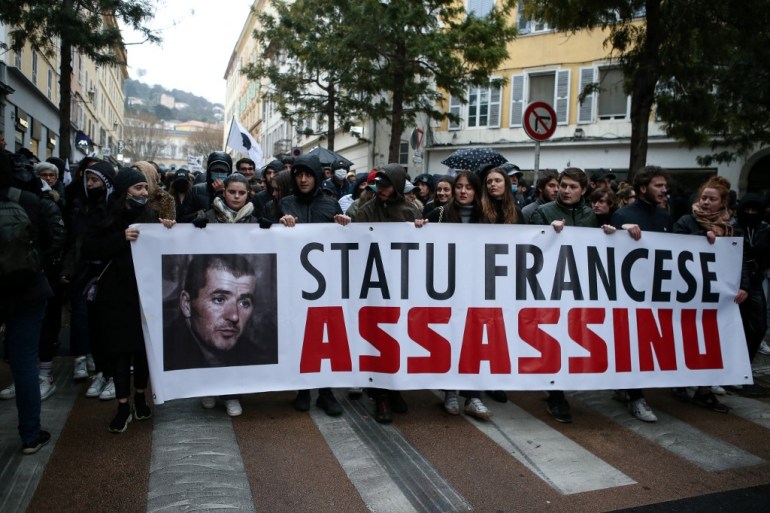Donald Trump sues Hillary Clinton, others over 2016 Russian collusion allegations
By Jan Wolfe and Jonathan Stempel
WASHINGTON (Reuters) - Donald Trump on Thursday sued his rival in the 2016 U.S. presidential election, Hillary Clinton, and several other Democrats, alleging that they tried to rig that election by tying his campaign to Russia.
The lawsuit covers a long list of grievances the Republican former president repeatedly aired during his four years in the White House after beating Clinton, and comes as he continues to falsely claim that his 2020 election defeat by Democratic President Joe Biden was the result of widespread fraud.
"Acting in concert, the Defendants maliciously conspired to weave a false narrative that their Republican opponent, Donald J. Trump, was colluding with a hostile foreign sovereignty," the former president alleged in a 108-page lawsuit filed in a federal court in Florida.
Related video: Biden says he'd be 'fortunate' to run against Trump in 2024
The suit alleges "racketeering" and a "conspiracy to commit injurious falsehood," among other claims.
A Clinton representative did not immediately respond to a request for comment.
The suit seeks compensatory and punitive damages. Trump said he was "forced to incur expenses in an amount to be determined at trial, but known to be in excess of twenty-four million dollars ($24,000,000) and continuing to accrue, in the form of defense costs, legal fees, and related expenses."
The defendants in Trump's lawsuit include Christopher Steele, a former British intelligence officer.
A dossier written by Steele, which was circulated to the FBI and media outlets before the November 2016 election, set out unproven assertions that Russia had embarrassing information about Trump and some of his Republican campaign's advisers and that Moscow was working behind the scenes to defeat Clinton.
A 966-page report issued by a Republican-led U.S. Senate committee in 2020 concluded that Russia used Republican political operative Paul Manafort and the WikiLeaks website to try to help Trump win the 2016 election.
Manafort worked on Trump's presidential campaign for five months in 2016.
Russia’s alleged election interference, which Moscow denies, sparked a two-year-long U.S. investigation headed by Special Counsel Robert Mueller.
In 2019, Mueller released an exhaustive report that detailed numerous links between the Russian government and the Trump campaign but did not charge any Trump associate with a criminal conspiracy.
Mueller said in his report that "the Russian government perceived it would benefit from a Trump presidency and worked to secure that outcome, and that the campaign expected it would benefit electorally from information stolen and released through Russian efforts.”
(Reporting by Jan Wolfe in Washington and Jonathan Stempel in New YorkEditing by Scott Malone, Chris Reese and Leslie Adler)
Brad Reed
March 24, 2022

www.rawstory.com
Former President Donald Trump on Thursday filed a lawsuit against Hillary Clinton in which he accused her of engaging in an "unthinkable plot" to make him look like Russian President Vladimir Putin's puppet.
Many legal experts, however, are not impressed with the president's claims.
Trial lawyer Max Kennerly, for instance, spotted an elementary legal citation error in the lawsuit within minutes of reading through it.
"As an indication of the quality of Trump's complaint, Count III alleges 'injurious falsehood,' an obscure state law tort that is essentially trade libel," he wrote on Twitter. "In support, Trump cites a federal law that has nothing to do with it. 18 U.S.C. § 2701 is the Stored Communications Act."
Former federal prosecutor Ken White, meanwhile, similarly found himself in disbelief by the lot quality of Trump's lawsuit.
"Oh you've GOT to be f*cking kidding me," he wrote. "Dear Former President Trump: Next time, hire lawyers smart enough not to concede repeatedly in your lolsuit that Russia was a hostile foreign sovereignty."
Harvard Law professor Lawrence Tribe dismissed Trump's lawsuit as "absurd" on its face.
"An absurd lawsuit by an absurdly litigious former president who has only himself to blame for being compromised by Putin and thus looking like he is compromised by Russia," he wrote.
National security attorney Bradley Moss, meanwhile, said he wasn't going to even bother reading Trump's complaint.
"You couldn't even pay me to read this garbage," he wrote.















